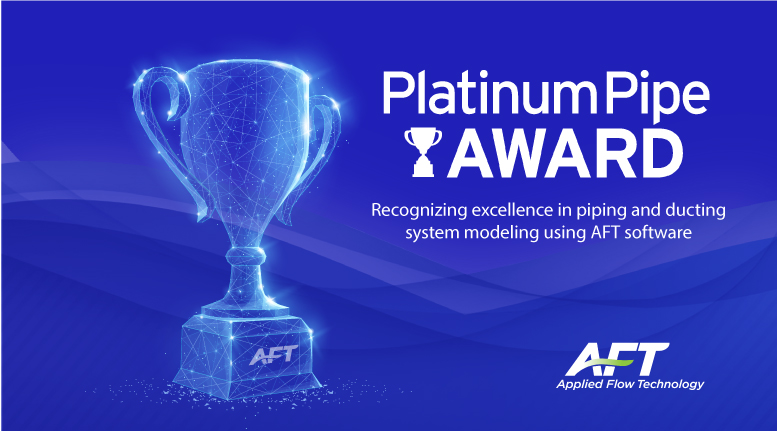AFT Blog
Taking the Pulse of Fluid Systems: Introducing the New AFT Impulse PFA Module
Pulsation in fluid systems...Is it steady-state or is it transient? Well, it is both. Kind of. Pulsation causes periodic transients that are regular in nature and thus considered steady-state. It can be called "steady-state pulsation".
The problem is not whether pulsation is steady-state or transient. It is whether the frequencies that are excited by the pulsation are at or near the acoustic resonant frequencies of the fluid system. If so, there can be problems. API 674 defines the allowable pulsation limits for positive displacement pumps.
AFT will soon release the new PFA module for AFT Impulse. PFA stands for Pulsation Frequency Analysis. This new module will help engineers predict, understand and avoid resonant frequencies related to the fluid acoustics. It will also help engineers assess whether their system is in compliance with API 674.
The genesis for the PFA module started in 2016 when I began work as second author on a paper presented at the 32nd Pump Symposium called Pulsation Analysis In Positive Displacement Pump Systems Using Waterhammer, Modal and Animation Software. In that paper the first author, James Blanding, described a process where he used AFT Impulse (the waterhammer software in the paper), modal software (to determine the resonant frequencies that are excited), and animation software to show the frequency response. In so doing he developed a process using commercially available tools to evaluate pulsation.
The process that Blanding created involved a significant amount of manual effort to set up the analysis and to process the data. With the PFA module, AFT has automated most of this process making it easier than ever for engineers to analyze pulsation and resultant frequency response in the system.
The cool thing is that underneath the PFA module is the same AFT Impulse now in its third decade. Engineers still have access to the same friendly user interface, numerous usability features, and advanced graphing capabilities.
If you have an interest in pulsation, check out the AFT Impulse PFA module for yourself!



Comments